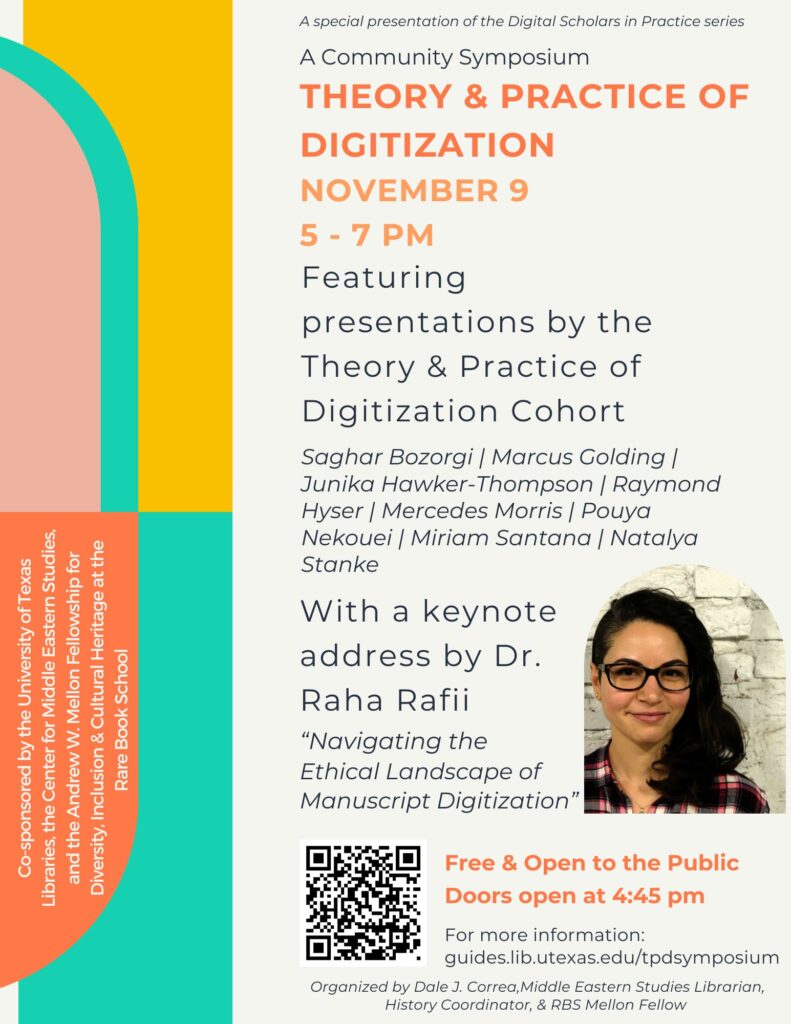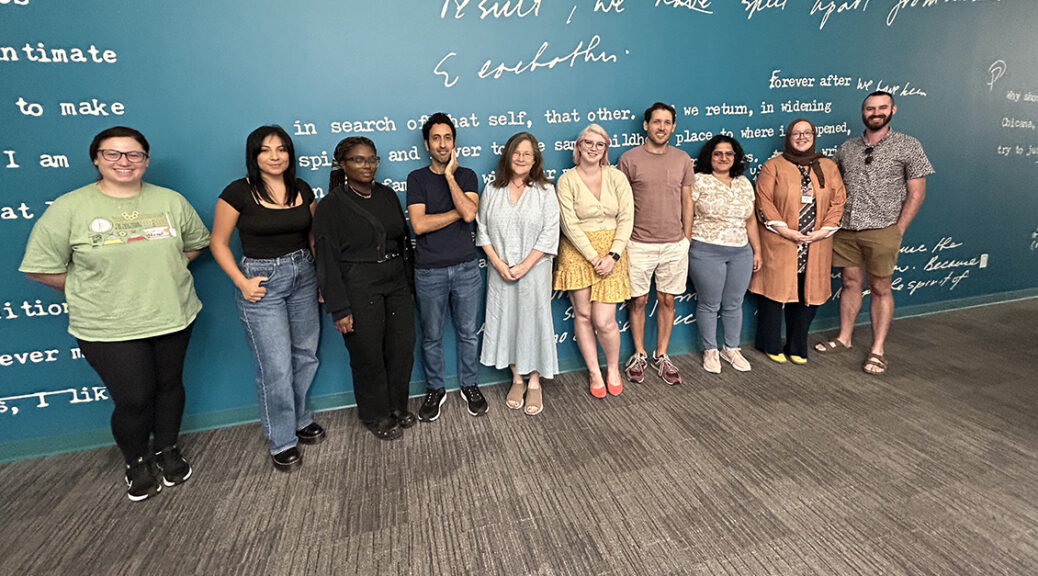In summer 2023, the UT Libraries invited applications from UT Austin graduate students to participate in a community symposium program centered on developing thoughtful and reflective research and digitization practices. The symposium program aims to create a cohort of UT Austin graduate students engaged in critical reflections on collection development, research practices, and digitization, and the potentialities for reparative work within all of these spheres. The program is called “The Theory & Practice of Digitization Community Symposium” and it is co-sponsored by the UT Libraries and the Andrew W. Mellon Fellowship for Diversity, Inclusion & Cultural Heritage at the Rare Book School.
Eight UT graduate students were selected to participate in the program cohort. The students–in MA and PhD programs–are studying in the African & African Diaspora Studies, English, History, and Middle Eastern Studies departments, as well as in the UT iSchool. They have a variety of experiences with research in libraries and archives, with digitization, and with publishing scholarship, all of which they bring to their cohort discussions. However, they are united to realize the goals of this symposium program, which include reading about, discussing, and creating approaches for research and collection development in a digitizable environment. The latter can be described with the question: what does it mean to create or select print and electronic content in an environment in which digitization is possible and high quality; in which there is support for the applications of machine-readable text; and in which the materials are stewarded by libraries and used by researchers outside of the materials’ region of origin?
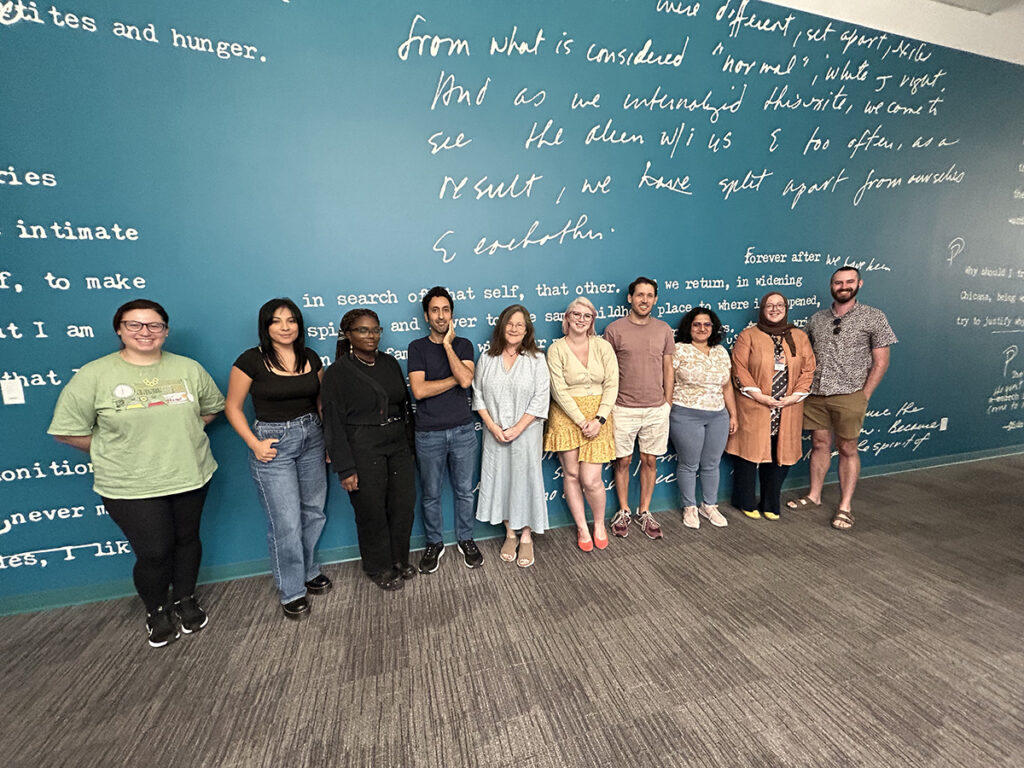
Cohort participants are encouraged to engage with existing writing (scholarly and popular) on these topics in thoughtful and critical ways, with the end goal being to create a sense of belonging to the conversation. What gets digitized and how it gets digitized are decisions that affect everyone, but most of all, marginalized communities that have been historically disadvantaged from participation in scholarship and the building of library collections (even, and especially, collections for which they are the subject). As part of this program, cohort participants are trained in the basics of scanning, OCR, and outputs/applications with a material selection of their choice, so that they have insight into the hands-on processes of digitization and how to use this technology for their goals. The program’s culminating public symposium puts the cohort’s theoretical and practical experiences in conversation with a digital cultural heritage scholar and engagement with the audience in order to realize new approaches to digitized resources.
I developed The Theory & Practice of Digitization Community Symposium Program as the final project for my Mellon Fellowship for Diversity, Inclusion & Cultural Heritage at the Rare Book School. As fellows, we are asked to put together a community symposium at our home institution that advances understanding of cultural heritage, archives, and/or special collections and allows us to promote aspects of our collections to broader publics and communities. With the development of the new Scholars Lab at the Perry-Castañeda Library, and considering my own interests in reparative and restorative practices in librarianship and scholarship, I wanted to create an opportunity for graduate students to expand their researcher skill-sets and build reflective approaches to their future professions. We are incredibly fortunate to have a wide range and depth of expertise at the UT Libraries, and it is from this well of experience and insight that this program has drawn.
Our first session, held at the end of August shortly after the semester began, featured a conversation with Rachel E. Winston (Black Diaspora Archivist at the Benson Latin American Collection) and Beth Dodd (Curator at the Alexander Architectural Archives) on defining terms for our work in this program through their experience with digitization as archivists at UT. Rachel and Beth presented on the process of selecting and adding items to the archives, including when, how, and why they make decisions around digitization. Their experiences with a variety of collections––from donors or vendors; recent or older; created in the U.S. or around the world––gave them insight to respond to students’ questions regarding the ethics of archival digitization and stimulated the students’ engagement with crucial concepts by providing real and tried examples for them to consider.
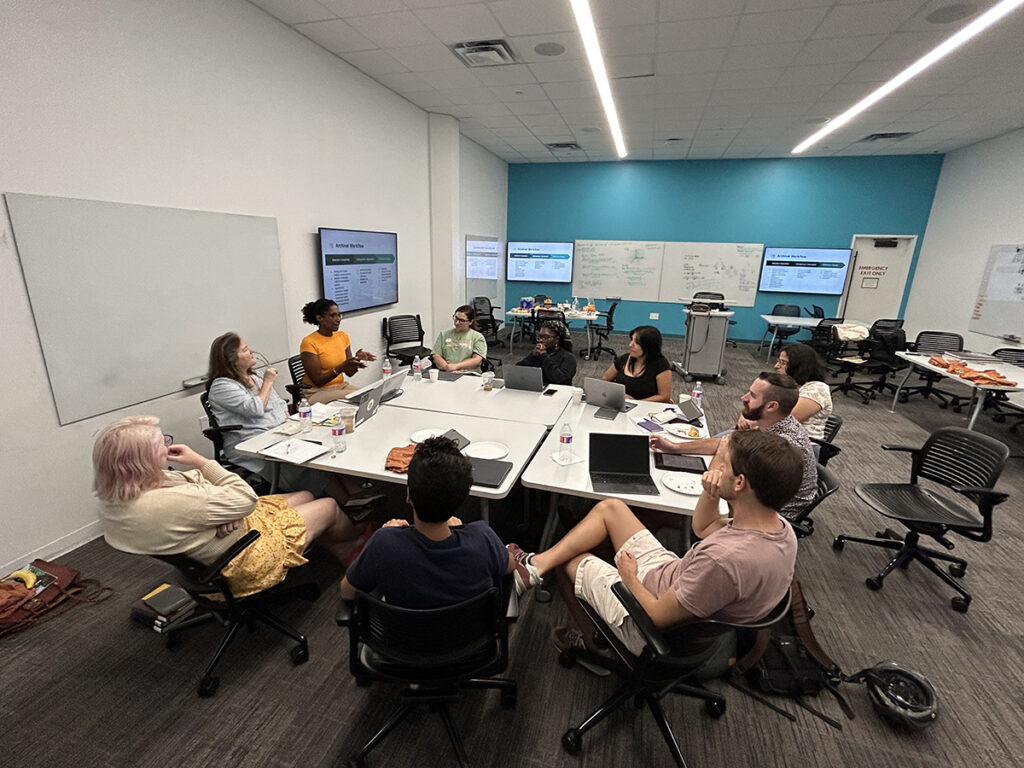
The program’s second session introduced students to the basic principles of handling cultural heritage materials and digitizing them. My colleagues from the UT Libraries’ Stewardship department, Brittany Centeno (Preservation Librarian) and Kiana Fekette (Head of Digitization) led the students through a review of best practices for handling paper materials such as books, periodicals, and personal archives. The session was held in the new Scan Tech Studio in the Scholars Lab, which functions as a self-service facility for independent researcher digitization, image processing, and text recognition-based scholarship. Brittany and Kiana brought sample materials so that the students could get a sense of what to do for for different preservation situations, such as a book with a broken spine, brittle and flaking paper or leather, bent or misshapen items, and materials that are tightly bound. They also demonstrated how to use a diffuser light set up, which can be particularly useful for items with a difficult-to-capture sheen (such as different types of photographs) or for mobile applications when traveling for research.
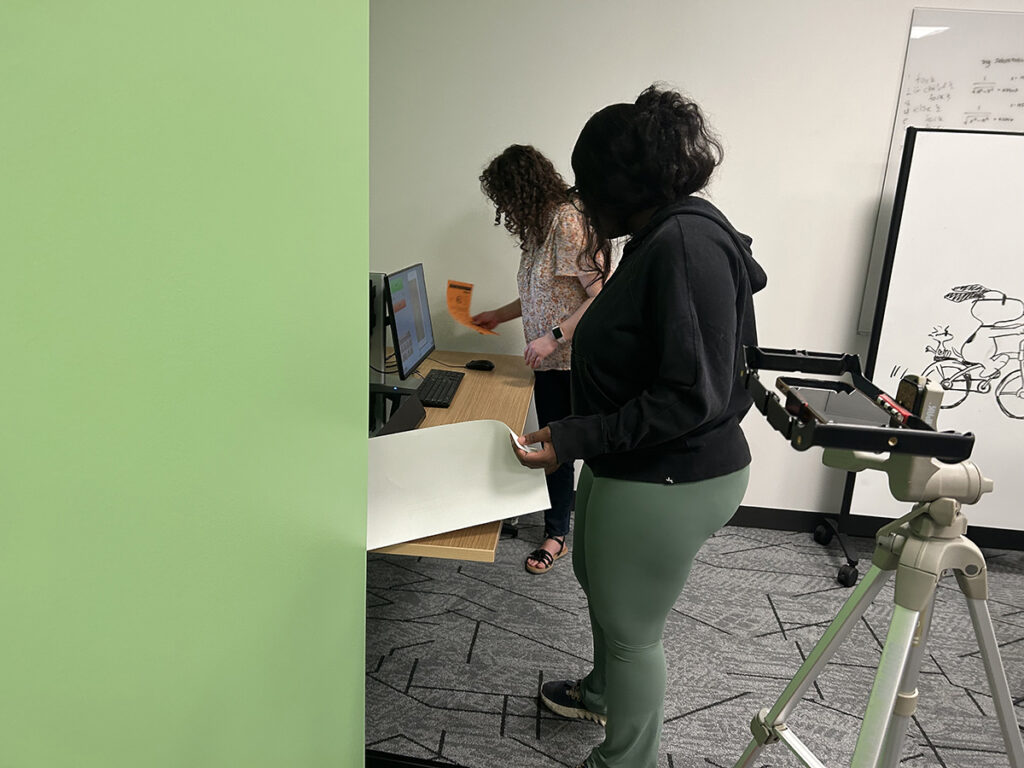
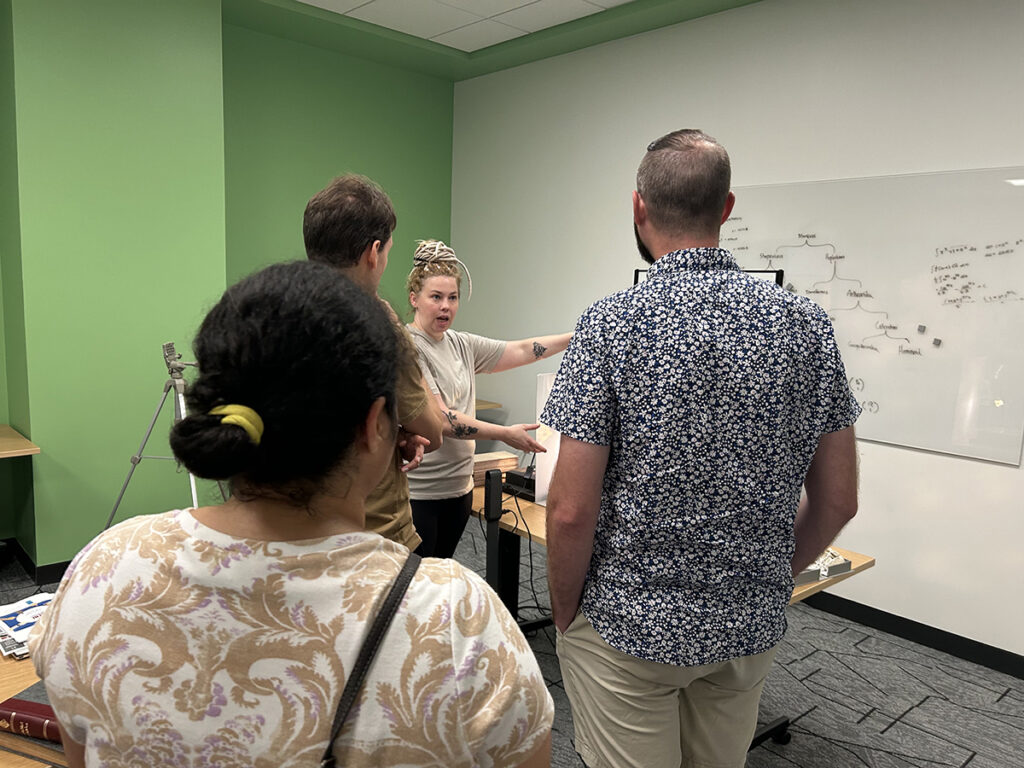
In our third session, we met with Allyssa Guzman (Head of Digital Scholarship Services) and Ian Goodale (European Studies Librarian) for a survey of, training with, and discussion of tools that the students might use for their research with digitized materials. Allyssa covered how to get started with digital scholarship, including project planning/management and tool selection. She created an excellent LibGuide for the cohort to refer back to as they move forward with their work. Ian reviewed a number of tools that we recommend and regularly use here at the UT Libraries for transcription/OCR correction and text analysis, including some that he has developed himself.
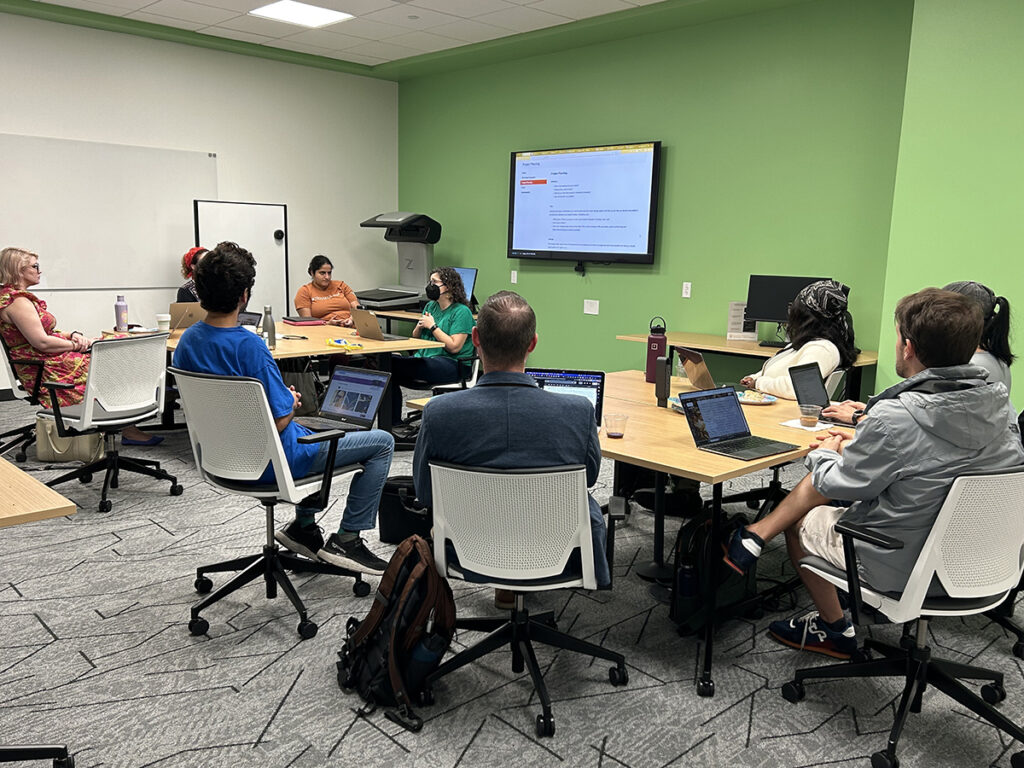
The cohort’s efforts will culminate in a community symposium on November 9, 2023, 5 – 7 PM in the PCL Scholars Lab Data Lab. This event is free and open to the public: everyone is invited and encouraged to attend. The symposium is an opportunity for the UT, Austin, and greater central Texas communities to learn about the digitization of cultural heritage through the experiences of the student cohort members. It’s also an opportunity to hear from a respected scholar of digital cultural heritage, Dr. Raha Rafii, who will be giving the keynote address. Her lecture, titled, “Navigating the Ethical Landscape of Manuscript Digitization,” will look at recent examples of digitized forms of cultural heritage and the impact on their origin communities in order to think through complex issues of ethics, and to determine the lines between academic researcher priorities and digitization as an extension of colonial and imperialist practices. For more information on the community symposium, please see the UT Libraries’ Events page.
